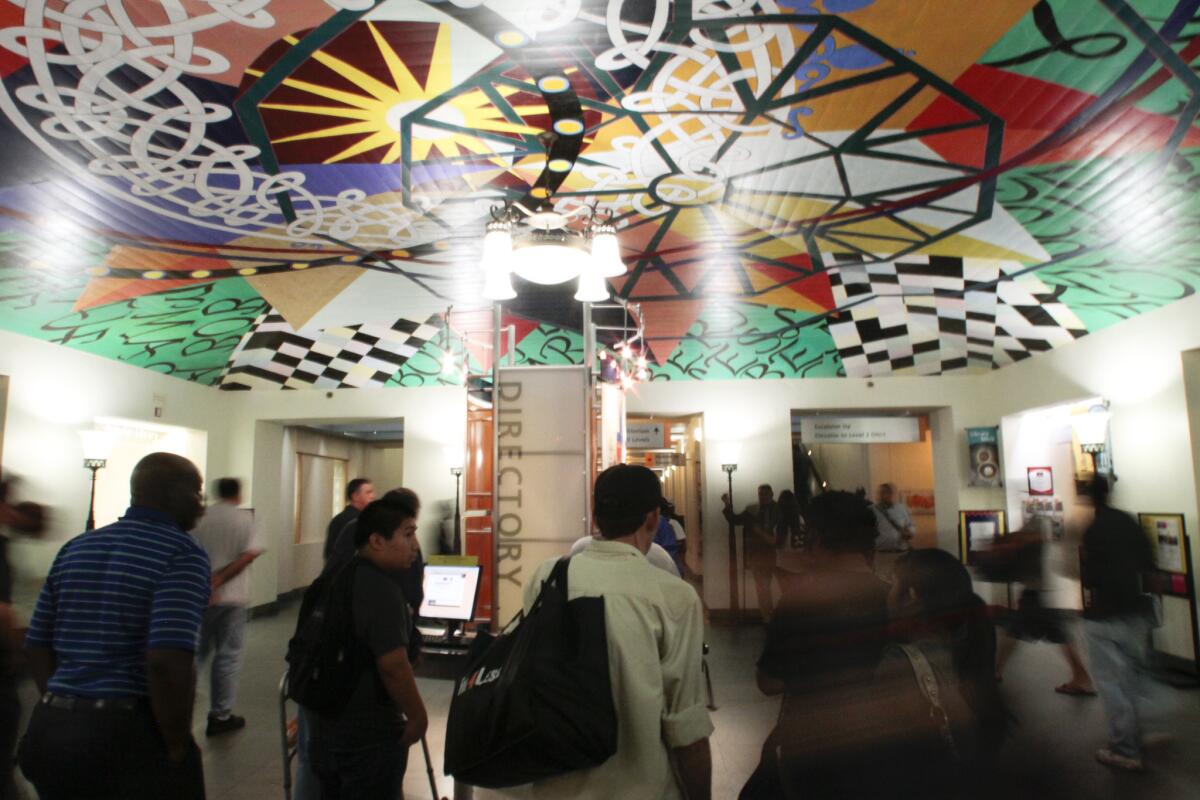Younger Americans still use public libraries, survey finds

- Share via
Think teens and twenty-somethings who are used to looking up everything on smartphones have little use for the public library?
Think again.
People in their 20s and older teens are just as likely as older Americans to have visited a public library in the last year -- and about as likely to have taken out books or browsed the shelves once they got there, a new study from the Pew Research Center’s Internet & American Life Project finds. Nearly two out of three said they had a library card.
Young people do use libraries differently from older adults: They are nearly twice as likely to have used computers and the Internet there, and much more likely to have hung out in libraries to study or read, Pew found. They were less likely to have gotten help from a librarian.
Yet 80% of Americans between the ages of 16 and 29 said librarians were “very important,” the survey found. Three out of four said it was crucial that libraries offer books to borrow -- just as many said the same about free access to computers and the Internet.
“Younger Americans don’t seem to be radically different from older adults in their conception of the library,” Kathryn Zickuhr, a Pew research analyst, said. “They think libraries should have books. They think libraries should have librarians. They think libraries should have quiet spaces.”
Pew also looked at reading habits of young Americans in general. In its survey, 82% of people ages 16 to 29 said they had read at least one book in any format in the last year -- bigger percentages than among older adults.
Though that might not be surprising to see among teenagers still in high school, reading was also slightly higher for people in their 20s compared with older adults, the study found.
Researchers also found that those in their 30s and 40s were most likely to have read an e-book. Nearly a third said they had read one in the last year, more than younger people and far more than among those 50 or older, the study found.
“E-reading is still fairly new,” Zickuhr said. “We’re not seeing very high rates of e-reading amongst younger adults. But that could rise and affect the image of the library.”
The Pew survey included more than 2,200 people contacted via telephone, including land lines and cellphones, in October and November of last year.
ALSO:
Rusty the red panda escapes from National Zoo for a field trip
Texas students have strong opinions on affirmative action ruling
Lawyers to argue over phone call in George Zimmerman murder trial
More to Read
Sign up for Essential California
The most important California stories and recommendations in your inbox every morning.
You may occasionally receive promotional content from the Los Angeles Times.









